Friday Library Recommendations: Coventry Inspiration Book Awards Week 3
It’s the third week of evictions, and another group of amazing books have left the competition. Have a look at my recommendations for what to try next if your favourite left the competition this week.
What’s The Story
The third book to leave this category is These Are My Rocks by Bethan Woollvin. Join the narrator, as they proudly introduce the reader to their prized collection, featuring BIG things to small things…and spiky things to wobbly things! Each page is bursting with humour – and they are interactive too – with children encouraged to interact with the book, with invitations to point, make noises, clap their hands and think about what they could collect.
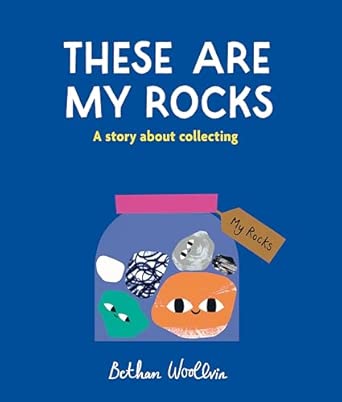
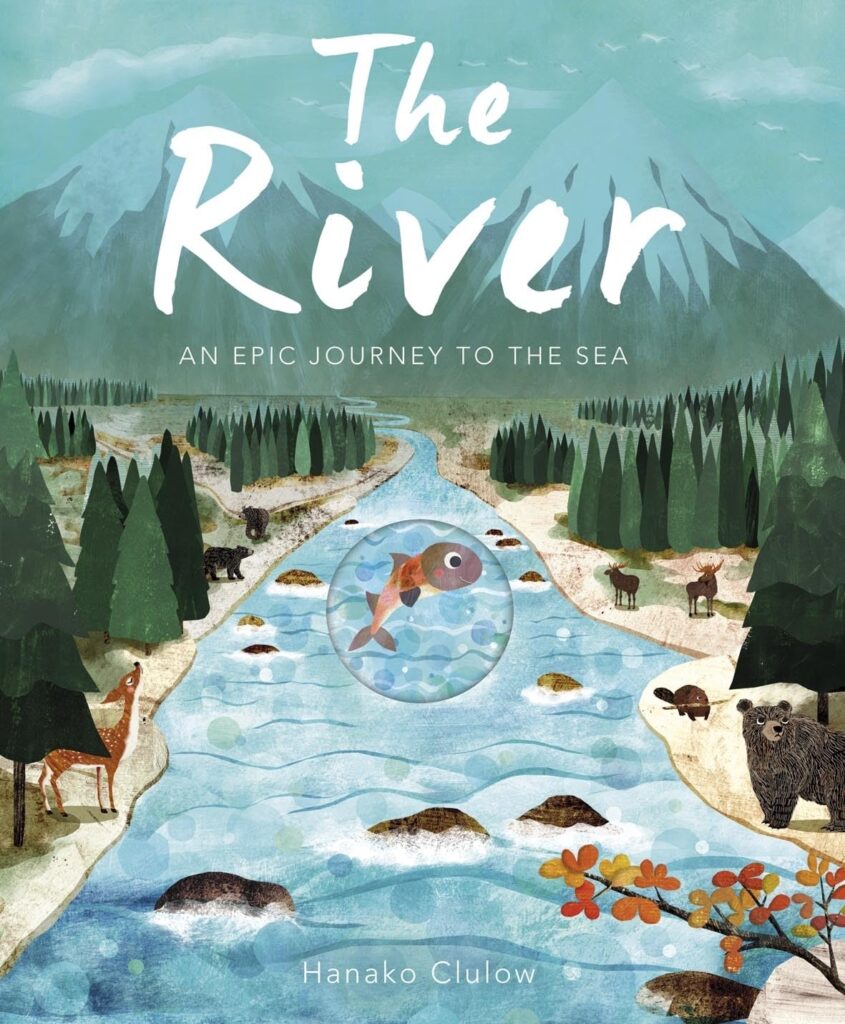
If you loved this, do try The River by Patricia Hegarty & Hanako Clulow , a beautifully calming picture book that gently invites children to follow a little fish on her journey downriver and into the unknown. With its lyrical text and flowing illustrations, this story is perfect for slowing down and enjoying together. Children will love spotting the magical swimming fish on every page, while adults will appreciate the rich language and peaceful rhythm of the story. This is a lovely book for sharing at bedtime or in the classroom, encouraging curiosity about nature and supporting discussion around journeys, change and confidence. A true book to treasure and return to again and again.
Telling Tales
The next book to leave our Year 3 and 4 category is a real shock – it’s Donut Squad Take Over The World by Neill Cameron. Ever wondered what donuts get up to when they’re not being eaten? No, because that would be silly! But it turns out, donuts have BIG PLANS FOR WORLD DOMINATION!!! Meet Sprinkles, the leader of the Squad; Jammyboi, who spreads stickiness EVERYWHERE; Dadnut and Lil’ Timmy, who explain obscure facts, and Spronky, who is bizarrely unconventional! But don’t mention the arch-nemeses of the donuts…the bagels, secretly plotting Donut Squad’s doom!
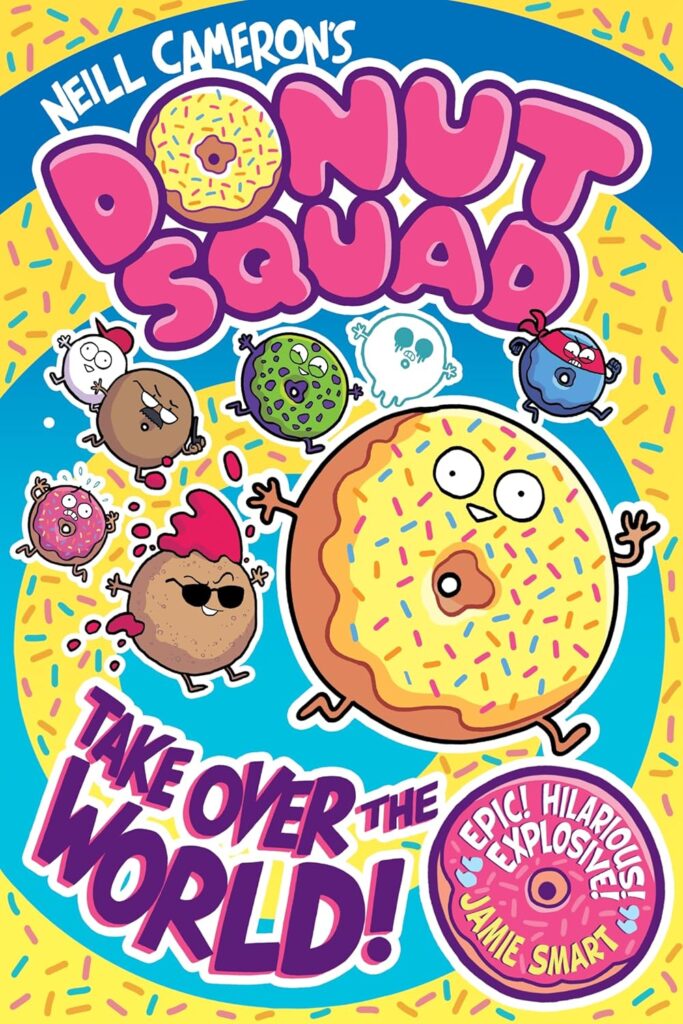
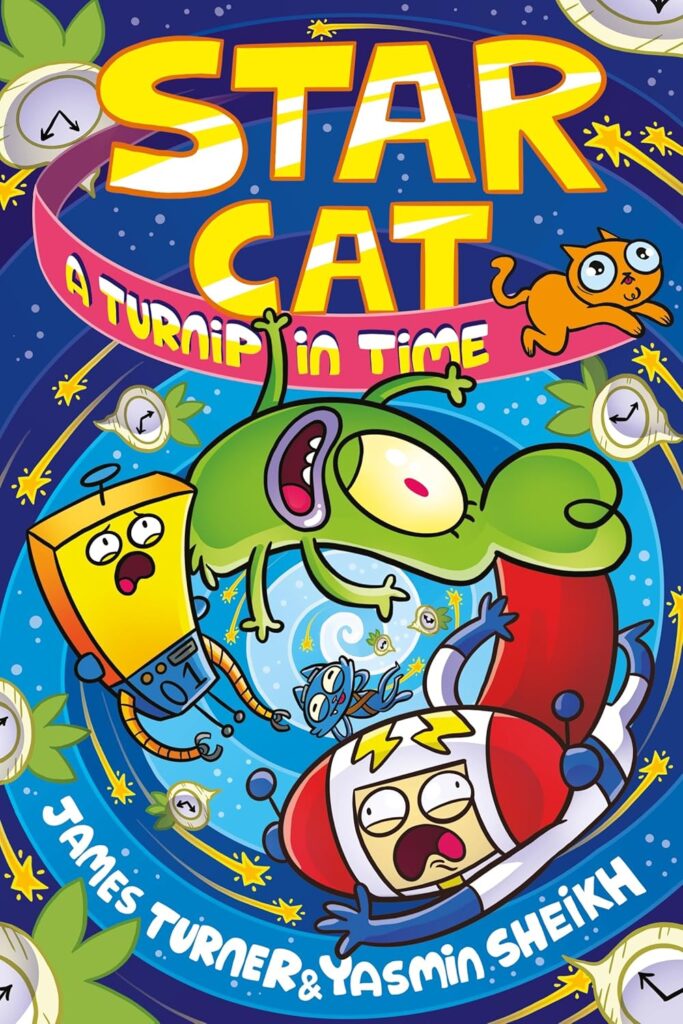
If you loved this, try Star Cat by James Turner, illustrated by Yasmin Sheikh, a laugh out loud graphic novel that is guaranteed to delight readers aged 7 and up. Bursting with colour, comic strips and gloriously silly humour, this book follows Captain Spaceington and the crew of the SS Star Cat on a series of wildly ridiculous space adventures. From mischievous space slugs to the wonderfully bonkers flativerse, there is something to spot and giggle at on every page. Perfect for encouraging reluctant readers, Space Cat combines accessible text with visual storytelling and plenty of jokes. A brilliant choice for children who enjoy humour, comics and fast paced fun.
Hooked On Books
The third book to leave our category for Year 5 and up is Feast And Famine: The Last Great Heir by Carina Finn. Rue Famine knows that only Feasts benefit from Feast rule. As the heir of House Famine, she spends her days studying potion-making in an enormous, dusty library and learning how to use her magic to help others. Custom dictates that the heirs of Feast and Famine must duel on their thirteenth birthday. Only one family can rule the land of Fauret, and Merri and Rue have been raised as rivals. But as the contest draws near and dangers escalate, their true enemy may be a shared one…
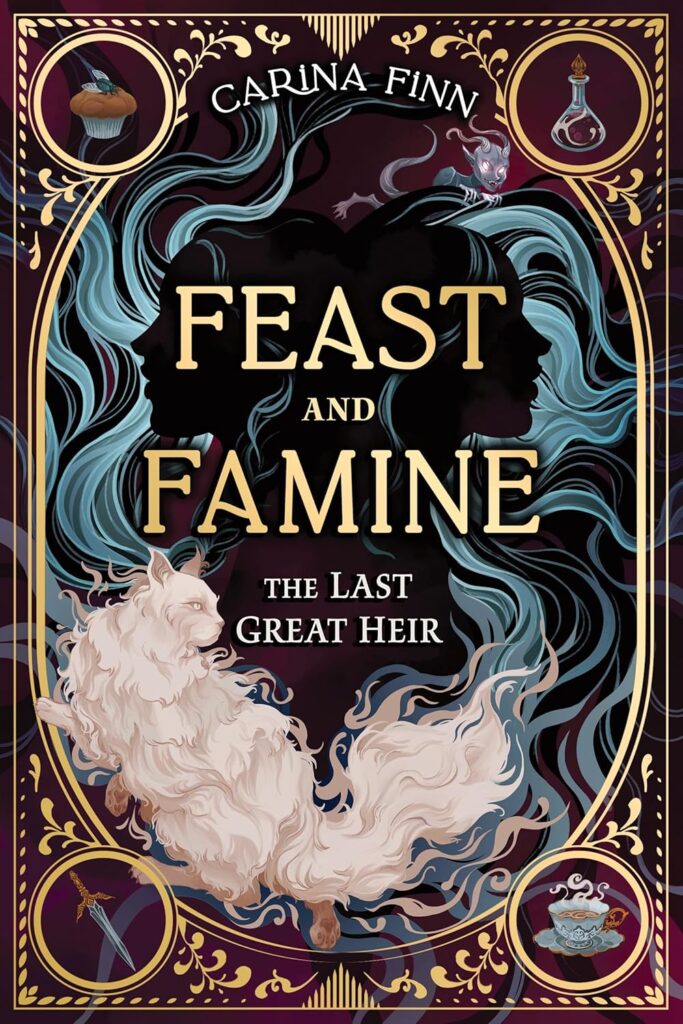
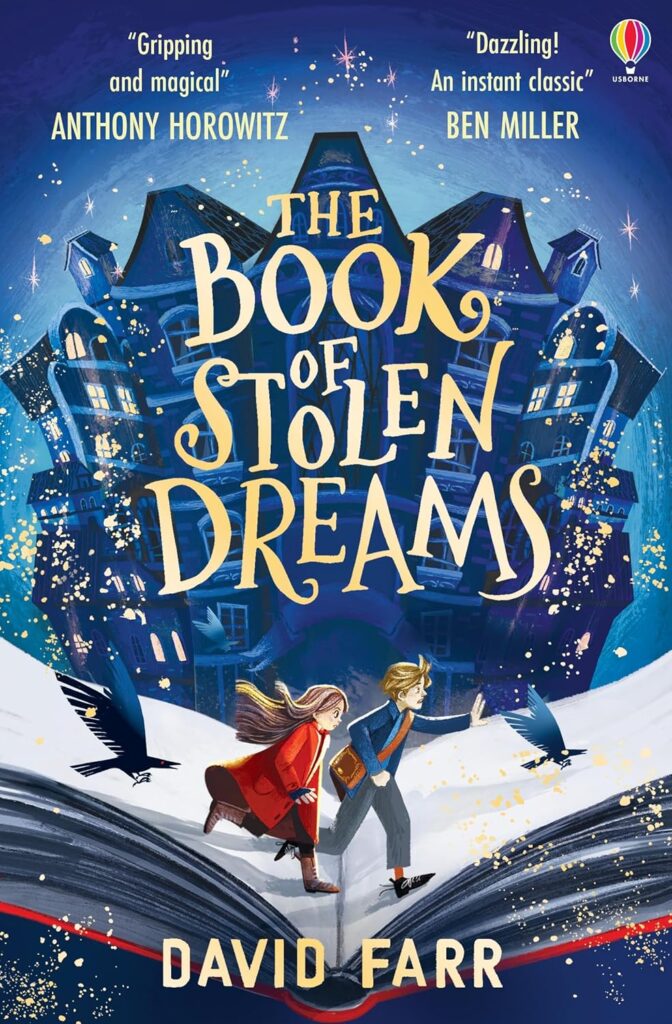
If you loved this, try The Book Of Stolen Dreams by David Farr. This gripping adventure story introduces us to Rachel and Robert, two siblings who find themselves in serious trouble after helping their father steal a forbidden book. When events spiral out of control, they are forced to go on the run and uncover the truth behind The Book of Stolen Dreams in order to save him.
Full of mystery, excitement and memorable characters, this book is perfect for readers who enjoy fast-paced plots and high-stakes adventures. It also explores important themes such as family loyalty, bravery and making difficult choices. A fantastic read for children looking for a story they will not want to put down, and there are two more books in the series!
If you don’t want your favourite to leave next week, make sure you vote at Coventry Inspiration Book Awards – Coventry City Council
Happy reading, and voting!
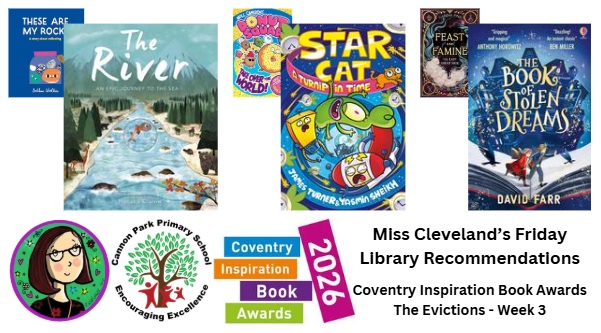
Wellbeing Wednesday: Kindness
Tips for wellness from our Mental Health In Schools Team

“We carry with us, as human beings, not just the capacity to be kind, but the very choice of kindness.” – R.J. Palacio
Kindness
Kindness means being friendly, generous, and considerate to others. It’s all about showing care and respect through our actions and our words.
Random Acts of Kindness Day is celebrated each year on February 17th, however you can practice random acts of kindness all year round
Here are some easy ideas to spread kindness:
- Give compliments – A genuine compliment can make someone’s day brighter.
- Hold the door open for someone.
- Share a smile – Smiling at people can help to boost their mood.
- Send a thank you note – Write a note of appreciation to someone who has helped you.
- Be a good listener – Sometimes, all someone needs is someone to talk to.
- Help your teacher – Offer to hand out something to the class or do something to help them.
- Ask someone how their day is going – Asking someone about their day can make them feel cared for and happier.
- Pick up a piece of litter.
- Offer to help someone at home.
Why is being kind important?
Kindness is contagious! When you show kindness, it inspires others to do the same. When you are kind to someone, it can help them to feel happy, it can brighten their day and boost their mood.
Kindness can help to make schools, homes and communities more welcoming and friendly. When people are kind, everyone feels more comfortable which can lead to better relationships and friendships.
Please contact [email protected] for information and advice about mental health and well-being for your child and your family.
Friday Library Recommendations: Coventry Inspiration Book Awards Week 2
It’s the second week of evictions, and once again, we say goodbye to some fantastic books from this year’s competition. Have a look at my recommendations for what to try next if your favourite left the competition this week.
What’s The Story
The second book evicted is Tiny McToot by Barry Falls. Tiny the giant lives in a shoe, and as the smallest giant in the land, he is always overlooked. But, when a HUGE and dastardly troll comes along, could it be Tiny’s diminutive size (along with his HUGE courage) that saves the day? A joyfully exuberant rhyming story about being seen, heard and accepted – however small you may be!
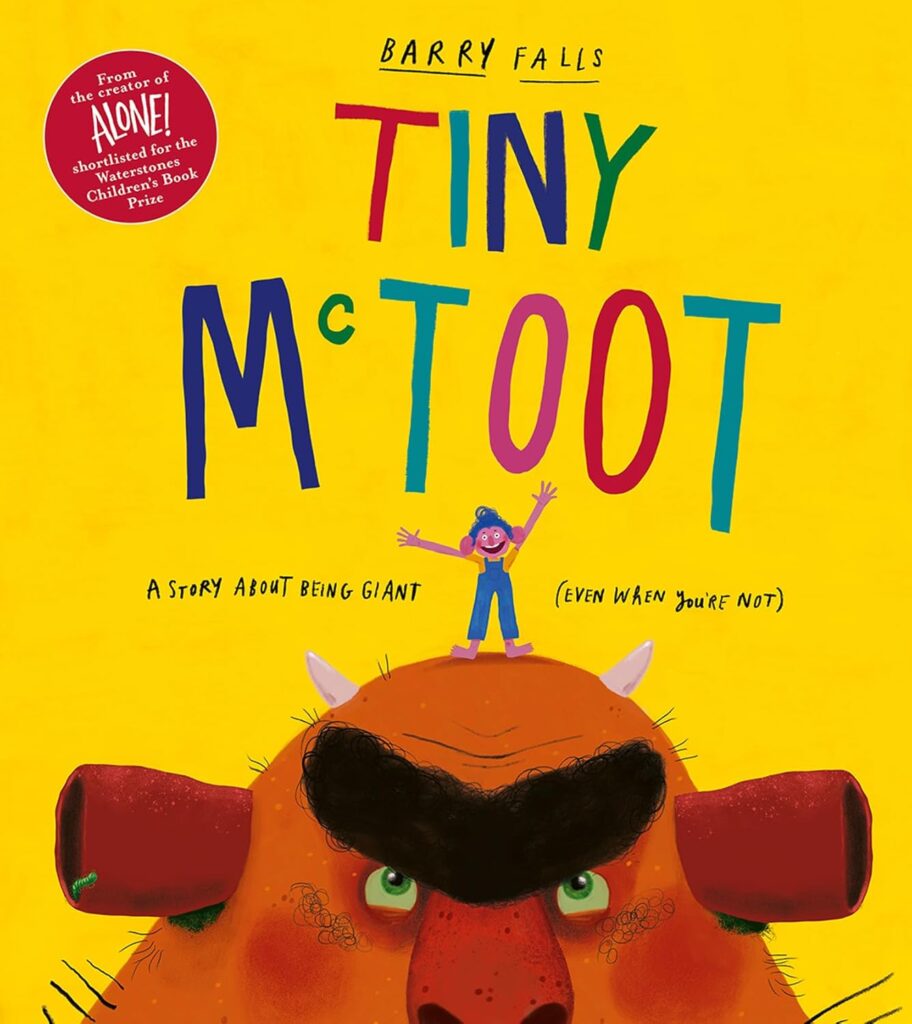
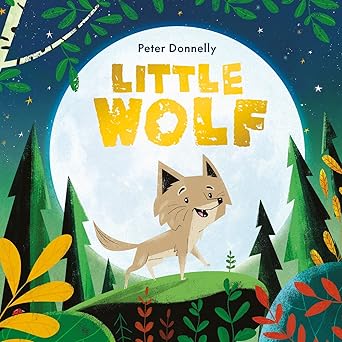
If you loved Tiny McToot, try Little Wolf by Peter Donnelly, a warm and reassuring picture book that celebrates confidence, kindness and being yourself. As the pack prepares for the Big Howling Ceremony, Little Wolf worries that his howl is not loud or impressive enough. With gentle encouragement and a tender message, the story shows children that bravery does not always mean being the biggest or noisiest. Peter’s soft illustrations and simple, rhythmic text make this an ideal read for younger children. Perfect for sharing at home or in the classroom, Little Wolf reminds us that every child’s voice matters, and that sometimes the quietest voices can be the most special.
Telling Tales
The second book to leave this category is Wild Magic: Legend of the Black Lion by Abiola Bello and Illustrated by Emma McCann.
Misha and Ziggy are no ordinary twins. They have a secret that no one else knows: Misha can speak to animals and Ziggy can shapeshift into them! The siblings couldn’t be happier to be joining their wildlife presenter father on a trip to Ethiopia, and they’re determined to help him bag the best footage of the legendary Black Lion. When the Black Lion goes missing, Misha and Ziggy are certain their powers can track it down. Can they find it before anyone else does and help keep the jungle safe from harm?
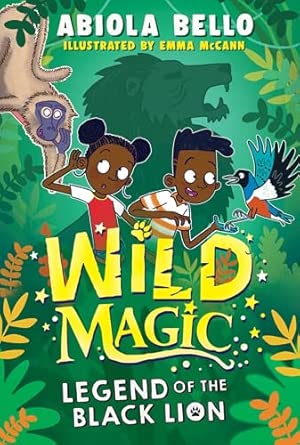
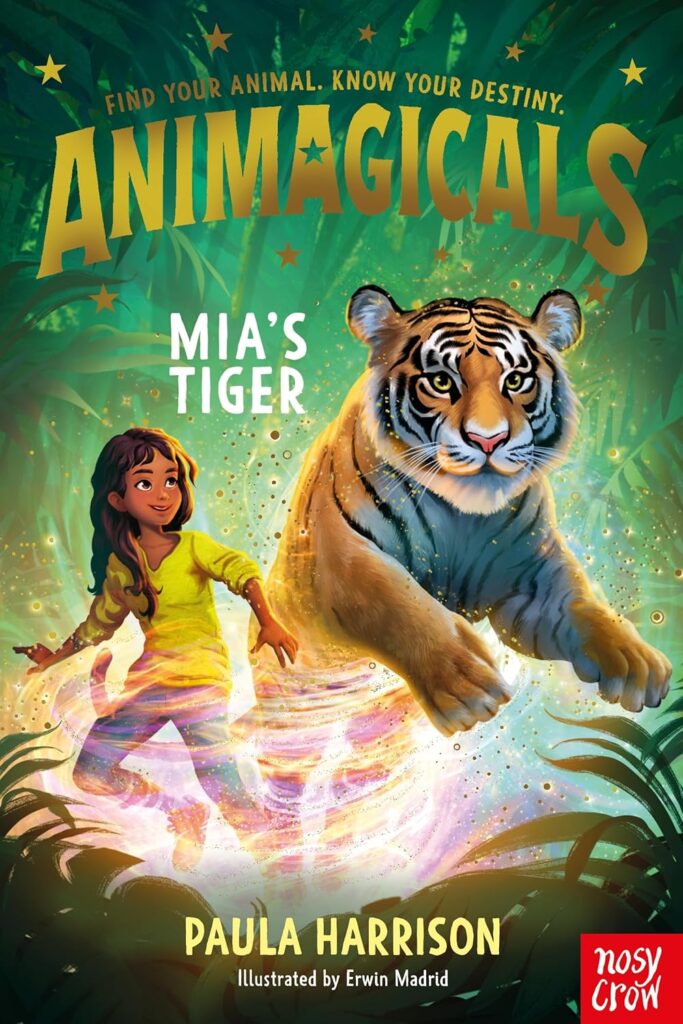
If this was your favourite, try Animagicals: Mia’s Tiger by Paula Harrison, an exciting new fantasy adventure, perfect for readers who enjoy magic, animals and friendship. Set at Wild Haven, a secret school hidden deep in a magical forest, the story follows children who can transform into animals while learning to control their powers. Mia is delighted to discover she is an animagical, but keeps accidentally turning into a mouse, which leads to plenty of humour and suspense. With fast-paced storytelling and a brave, relatable heroine, this book will quickly capture young imaginations. Ideal for confident readers, Animagicals is a fun and magical start to a new series that children will be eager to continue.
Hooked On Books
The second book to be voted out is The Line They Drew Through Us by Hiba Noor Khan, a powerful and thoughtful historical novel that introduces young readers to the events of Indian Partition with care and compassion.
Three best friends are born on the same day under miraculous circumstances. But by their twelfth birthday, Jahan, Ravi and Lakshmi’s lives are about to change forever. The British announce Indian independence and draw lines of Partition that tear apart the country, and the friends. One of them flees, one of them disappears, and the other is left wondering, could a miracle bring them back together?
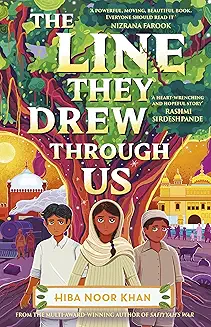
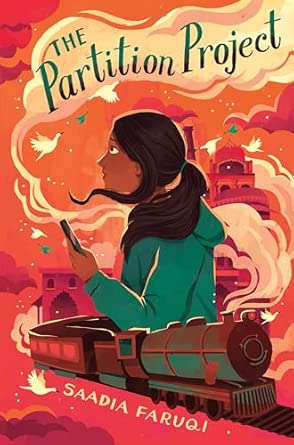
If you loved The Line They Drew Through Us, try The Partition Project by Saadia Faruqi, a moving and accessible novel that helps children explore history through family stories. Mahnoor, an aspiring young journalist, is asked to film a documentary and unexpectedly finds inspiration in her grandmother’s memories of the Partition of India and Pakistan. As the two grow closer, Mahnoor learns how the past continues to shape the present. Written with warmth and sensitivity, the book introduces a complex historical event in a way that is engaging and age appropriate. Ideal for older primary readers, The Partition Project encourages empathy, curiosity and thoughtful conversations about history, identity and the power of storytelling.
If you don’t want your favourite to leave next week, make sure you vote at Coventry Inspiration Book Awards – Coventry City Council
Happy reading, and voting!
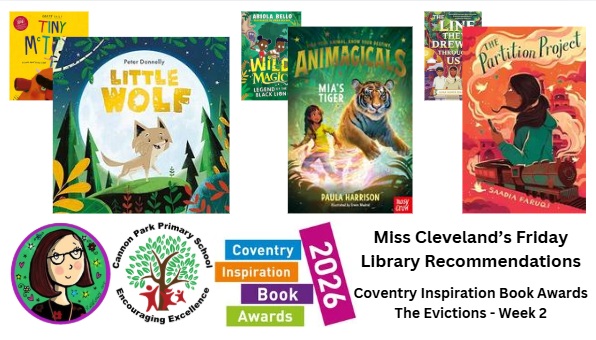
Wellbeing Wednesday: Mood Boosters
Tips for wellness from our Mental Health In Schools Team

“You’ll never find a rainbow if you’re looking down” – Charlie Chaplin
Mood Boosters
Our mood can change, and this is completely normal. You may notice that sometimes you are feeling more tired than usual, maybe stressed or experiencing difficulties with schoolwork or friendships. Situations like these may cause you to feel a bit low, it can be really helpful to talk about these things with an adult, or someone you trust.
Whilst it is normal to feel this way at times, there are things we can do to boost our mood and help us to feel happier. By doing more of the things we love and value, or ‘doing more of what matters’, we can boost our mood. This helps us to feel less tired, have an increased sense of achievement, feel better about ourselves and have some fun!
Our tips for boosting your mood:
- Have a look at the BBC Moodboosters video resources. There are a selection of videos to try, you could do these with a friend/ family member, with your class, or by yourself. But most importantly, have fun!
- The five ways to wellbeing – can you challenge yourself to try one of these for each day
over the next week! Watch the video for more information.
o Connect – Reach out to a friend/family member, listen to music that reminds you of happy memories, look at old photographs, or arrange activities with friends.
o Be Active – Try different ways to get your body moving. You could dance, walk, skip, or hula hoop!
o Take Notice – Spend time outside appreciating nature, maybe on your way to school or practise mindfulness.
o Keep Learning – Read a new book, watch a documentary, follow a new recipe, or learn a new language.
o Give – Give someone you love a hug, hold the door open for the person behind you, or give your time to help others.
Please contact [email protected] for information and advice about mental health and well-being for your child and your family.
Friday Library Recommendations: Coventry Inspiration Book Awards Week 1
I can’t believe we’re already at the stage of this year’s Coventry Inspiration Book Awards where the evictions have begun, and this week we say goodbye to some fabulous books. Have a look at my recommendation for what to try next if your favourite left the competition this week.
What’s The Story
The first book evicted is Trouble At The Bug Hotel by Kathryn Simmonds, illustrated by Tor Freeman. The Bug Hotel has a fancy dining room, a rooftop terrace…even a pool if water is your thing. What a wonderful hotel! Trouble is, Branwell the solitary bee is not welcomed by the other guests – they’re convinced he will sting! But Branwell can’t sting, and even if he could, he wouldn’t want to. When a curious toddler starts poking and shaking the bug hotel, our stripy hero, Branwell, ends up saving the day, showing us all a thing or two about resolving tricky situations peacefully.
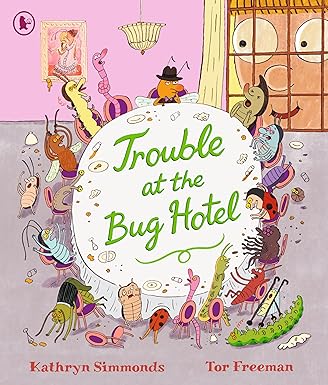
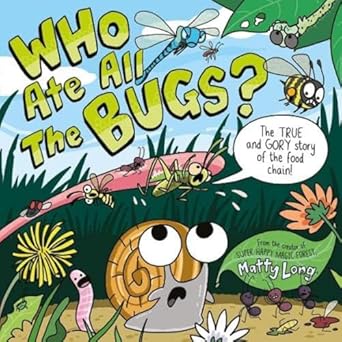
If you loved this, try Who ate all the bugs? by Matty Long, a brilliantly funny and informative picture book for our younger children. When Snail sets out to solve the mystery of disappearing bugs, young readers are taken on an entertaining journey through the food chain, guided by Glowworm’s wise (and slightly blunt) explanations. Packed with Matty Long’s trademark deadpan humour and bold, hilarious illustrations, this book introduces children to real-life facts about minibeasts and ecosystems in a way that’s accessible and engaging. Slightly disgusting, very clever and full of laugh-out-loud moments, it’s a great choice for curious young nature lovers.
Telling Tales
The first book to leave this category is The Lucky House Detective Agency by Scarlett Li, Illustrated by Sian James. Felix and his best friend Isaac love mysteries – chasing clues, identifying suspects, catching criminals – they can’t wait to open their own detective agency. So when Felix’s parents’ Lucky House takeaway is cursed with a spate of bad luck, Felix is determined to find the culprit. The boys’ investigations lead them to a clue: an ancient coin with a square hole at its centre. Could this lead them to secret treasure? (Un) fortunately, ‘Nosy’ Nina Ding, Felix’s sworn enemy, may have the answers.
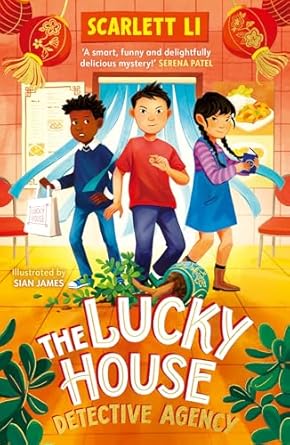
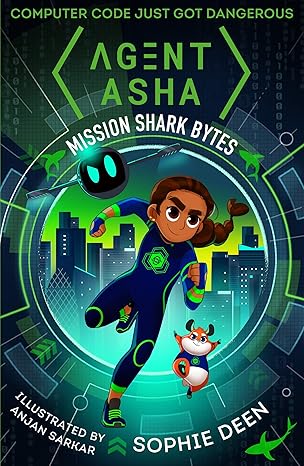
If you loved this, try Agent Asha: Mission shark bytes by Sophie Deen, illustrated by Anjan Sarkar, a fast-paced and funny spy adventure packed with techy twists. When Asha Joshi is recruited by the secret Children’s Spy Agency, she suddenly has a very good reason for not finishing her homework – she has to save the world before bedtime! Using her coding skills, Asha faces dodgy tech, dangerous sharks and a mysterious internet blackout. Bursting with action, humour and colourful illustrations, this book cleverly introduces children to coding and problem-solving while supporting key KS1 and KS2 computing concepts. A great choice for budding spies and future coders.
Hooked On Books
The first book to leave this category is the utterly brilliant The Boy In The Suit by James Fox, illustrated by Tika and Tata Bobokhidze, a poignant and heart-warming exploration of a young boy’s struggle to find his place in a world that seems determined to keep him on the outside. From a mismatched school uniform to a mother battling mental health issues, Solo’s story is a delicate balance of humour, sadness, and resilience. Ten-year-old Solo – embarrassingly, that isn’t short for anything – just wants to be normal. He wants a name that doesn’t stand out. He wishes he had a proper school uniform that fitted him. He dreams about a mum who doesn’t get the Big Bad Reds, like his mum Morag. But most of all he longs to stop crashing funerals for the free food. But when Solo and Morag crash the funeral of a celebrity and get caught, the press are there to witness their humiliation. The next day it’s splashed across the papers. Before Solo knows it, he becomes a viral sensation, and life may never be normal again.
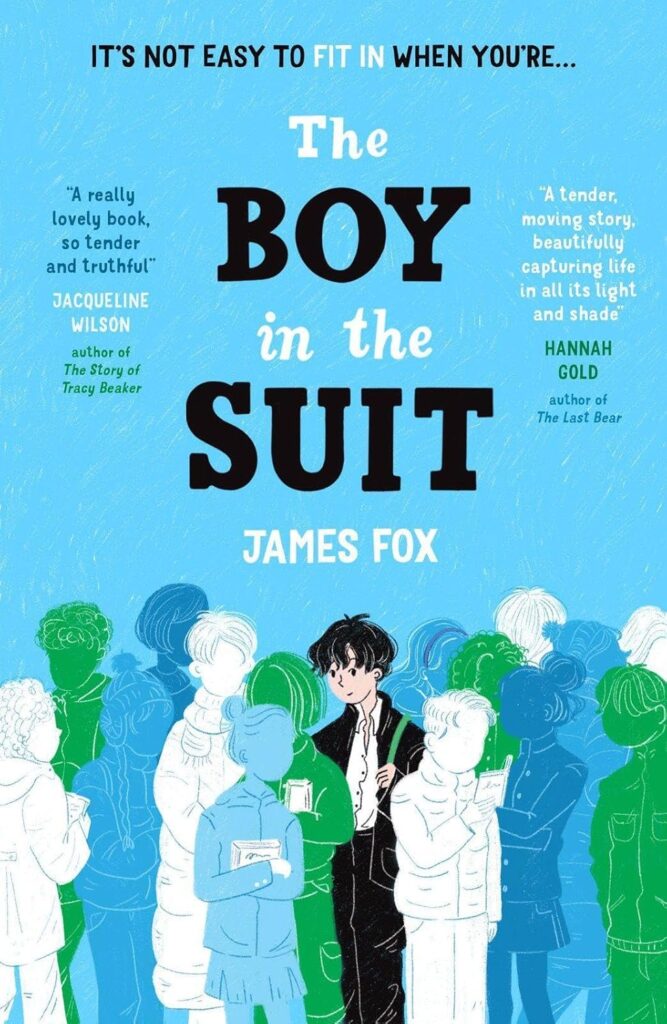
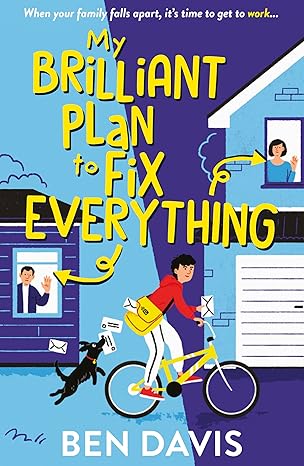
If you loved this, try My Brilliant Plan To Fix Everything by Ben Davis, a warm, funny and heartfelt story about family, friendship and good intentions going slightly wrong. When twelve-year-old Alex takes over his dad’s postal round so his dad can finally write a novel, he’s sure it will bring his family back together. Instead, Alex faces angry dogs, local bullies and an increasingly suspicious boss. Along the way, he finds unexpected support from Willow, a girl with secrets of her own. Told with humour and compassion, this is a thoughtful read about growing up, resilience and what really matters in families.
If you don’t want your favourite to leave next week, make sure you vote at Coventry Inspiration Book Awards – Coventry City Council
Happy reading, and voting!
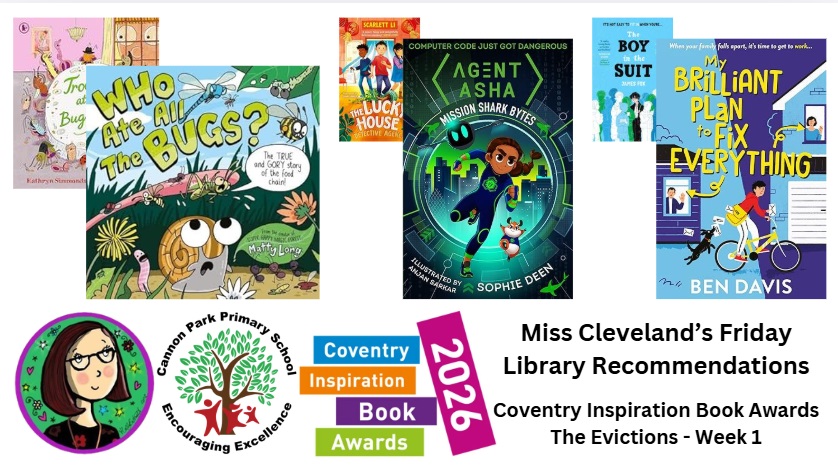
Wellbeing Wednesday: Learning
Tips for wellness from our Mental Health In Schools Team

“Live as if you will die tomorrow. Learn as if you will live forever.” – Mahatma Gandhi
Learning
We are always learning new things – often without realising it! Learning can include developing skills as well as developing knowledge. Learning something new can help to improve our mental wellbeing, as it gives us a sense of achievement and purpose. We can challenge ourselves to build new skills or develop skills that we already have. It can help to build motivation, confidence, and self-esteem too.
To help us to learn something new, we can set ourselves a challenge or a goal to work towards. Can you think of a new challenge or goal to try?
Learning can be fun! Studies show that learning can help us to enjoy life more! Can you find a new activity that you enjoy and make it part of your life?
Our tips for learning:
- Learn a new word each day! Can you use the new word in your schoolwork? Can you teach this new word to a friend?
- Get creative! Try a new craft activity or write a story or song. Have a look at some ideas for craft activities here: 50 easy craft ideas for you and the kids this school holiday | DIY makes for parents and kids under 6 – CBeebieshttps://www.bbc.co.uk/cbeebies/grownups/50-easy-craft-ideas-for-under-6s
- Try a new hobby, such as a new sport, learning to paint or join a new after-school club.
- Try a new food or learn to cook a new recipe. Could you share this experience with someone? For example, could you bake a cake with a friend, or cook a meal for your family?
- Learn a new language. Try and learn simple words and phrases, such as “hello”, “how are you?” and “my name is…”. You could use online resources or apps, such as Duolingo, to help you.
- Try a new sport or class. Could you help others to learn by becoming a coach for a junior team?
- Start a craft project! You could do this independently, or together with a friend. Remember to ask an adult for help if you need to! Follow the link for some project ideas: 430+ Easy Craft Ideas for Kids | Hobbycrafthttps://www.hobbycraft.co.uk/ideas/kids-craft-ideas/
Please contact [email protected] for information and advice about mental health and well-being for your child and your family.
